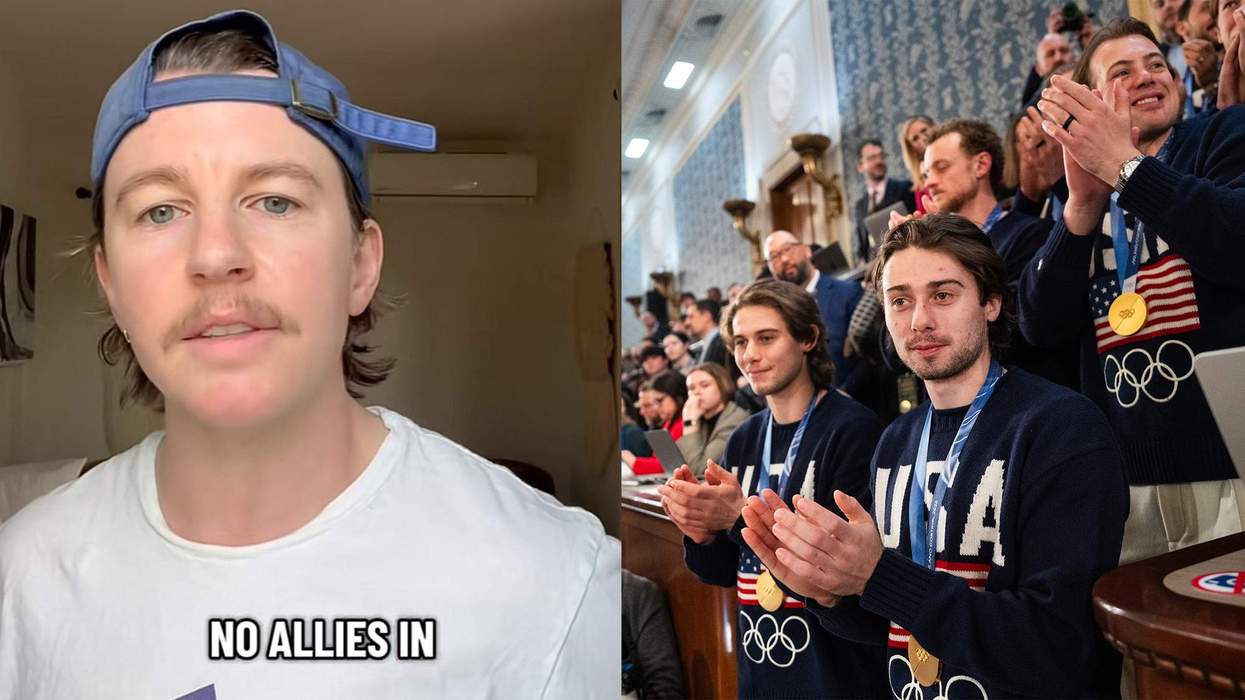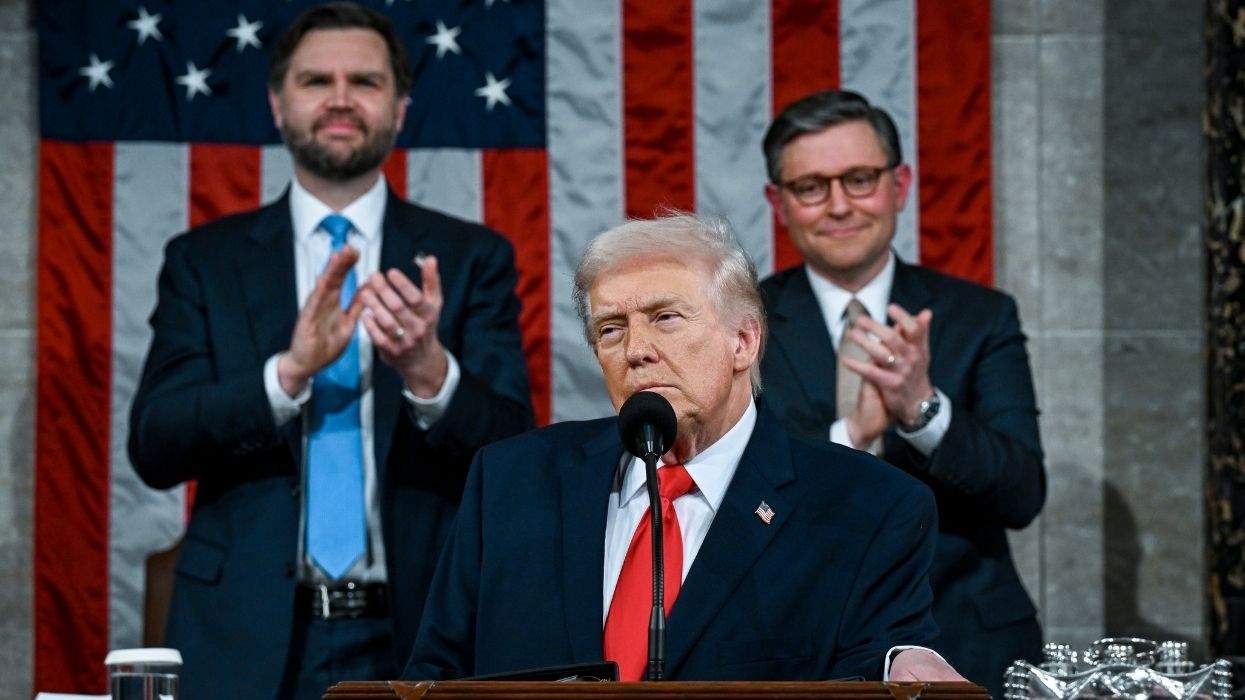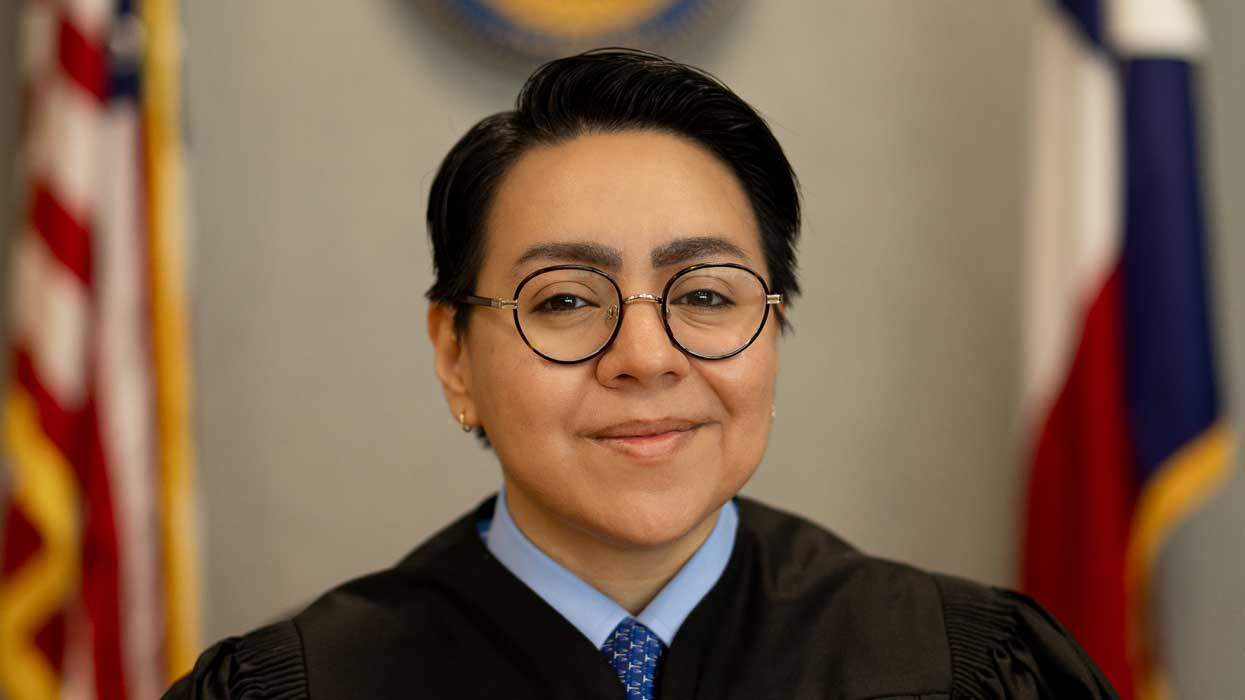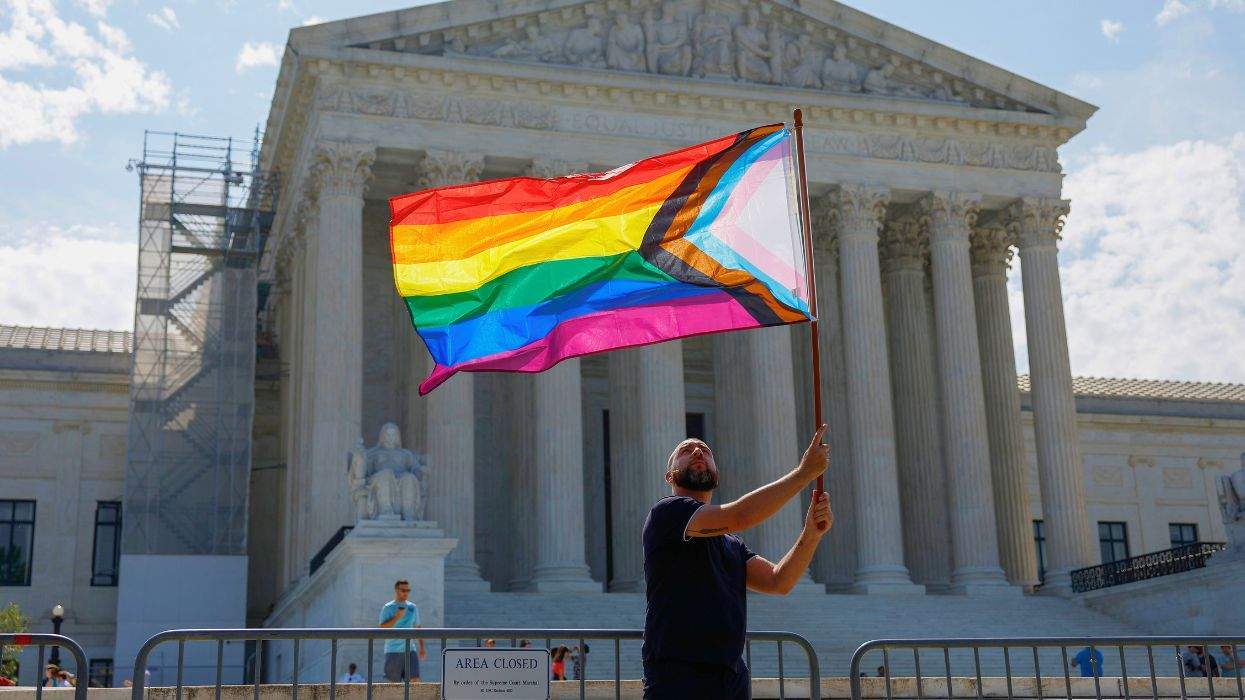The general election has begun in earnest. Sen. Barack Obama launched his first general election ad in 18 states Thursday and spent much of the week tailoring his image to all those independents who may still find themselves torn between himself and Sen. John McCain.
Politico.com broke a story Wednesday that two Muslim women wearing head scarves were prohibited from sitting behind Sen. Obama at a rally, so as to prevent any unintended photo ops. The campaign issued a statement and contacted the women to apologize, but the message was clear: Obama can't afford to seem too outside of the mainstream.
That sentiment also surfaced earlier this week when during an interview with ABC's Jake Tapper, Obama uttered the words so cunningly crafted by the Christian right: marriage is between a man and a woman.
More precisely, Sen. Obama said, "I believe marriage is between a man and a woman," shortly after being asked if he opposed same-sex marriage, to which he responded, "Yes." This positioning is not new for Sen. Obama. He has uttered those words plenty - during a debate with Alan Keyes in 2004, on the Senate floor in 2006, even in his 2007 Human Rights Campaign candidate questionnaire.
But if LGBT people across the country bristled at the one-man, one-woman construction, they can be forgiven. After scouring the web, drawing upon memory and scanning my notes, this reporter cannot remember the senator using those words during the entire primary season from January right through until Sen. Hillary Clinton conceded the race to Obama on June 7. In fact, I don't believe he has used them in any one of the 20-some Democratic debates.
Why now? Welcome to the general election say the pundits. One Democratic strategist and TV pundit who agreed to speak on the condition of anonymity said the language is intended to send a signal to swing state voters that Sen. Obama isn't the crazy liberal they've been told he is. "That's language that's required," he said.
But on the bright side, he added that Sen. Obama followed his man-woman statement with: "I also think that same-sex partners should be able to visit each other in hospitals, they should be able to transfer property, they should be able to get the same federal rights and benefits that are conferred onto married couples."
Indeed, the concept of a presidential candidate supporting civil unions was considered a serious liability as recently as 2004 when people wondered whether Howard Dean would be lambasted in a general election for signing Vermont's civil unions bill into law.
"Obama is saying he wants the federal government to recognize whatever the states decide to sanction," said the strategist. "That's progressive and that was unthinkable just 4 years ago."
Paul Begala, a Democratic strategist who is not working for any campaigns, found Sen. Obama's statement on gay marriage rather unremarkable given his previous proclamations on the issue. "I thought it sounded like the standard line for him," said Begala, who is an Obama supporter. "And I have to say as a political consultant, this is where you don't want to make news. It hurts your consistent position. He is where most people are, which is, we want to have civil unions, we want to have equal rights. But a lot of people get off the train on the word 'marriage,' and so you show respect for that."
That may be true, but any number of gays and lesbians would like a little respect too - especially those same-sex couples who are already married in Massachusetts and California. If you cup your ears and listen closely you can almost hear them grumbling, "Btw, Sen. Obama, marriage is no longer simply between a man and a woman. At least, ours isn't."
Surely, the LGBT folks associated with the campaign are working feverishly behind the scenes to find a work-around for that phrase - one with the added benefit of being accurate. Only time will tell whether they prevail. Begala reminds us that this political season will be a fight for the center that we have not witnessed in about 15 years, back when Ross Perot managed to draw enough independent votes (almost 20%) to hand Bill Clinton the presidency in 1992.
"The last two elections the country was so deeply polarized, and Bush won because he realized there really were no independents left," Begala said. "So, yes, there's a bigger pot of independent voters. And, interestingly, each party has nominated the candidate who, in the primaries, demonstrated the strongest ability to get independent votes."















